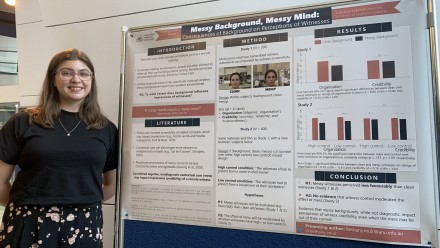Individual differences in generalisation: Revisiting Psychology’s first law
Abstract:
Shepard (1987) showed that the shape of generalisation gradients is invariant across animal species and stimulus dimensions when plotted over a dimension of psychological similarity to the trained stimulus. This led him to propose that Psychology’s first law should be one of generalisation. But how invariant is generalisation in humans? In this talk, I will present work showing that associative generalisation exhibits a surprisingly large amount of variation, discuss how individual differences in inductive rules can explain the canonical peak shift effect, and present a computational model of how people behave when there are multiple conflicting ways to generalise. I argue that generalisation can be conceptualised as an inductive inference that is inherently uncertain, and consideration of individual differences is needed to understand this basic and ubiquitous process.
Bio:
Jessica Lee is a DECRA Fellow in the School of Psychology at the University of New South Wales Sydney. Her research focuses on understanding how humans learn associations between stimuli and outcomes, and how we generalise that learning to novel stimuli. She is particularly interested in whether human behaviour is better explained by “low-level” associative processes or “higher-order” reasoning processes. She uses a combination of experimental methods, psychophysiological measures, and computational modelling in her research.










